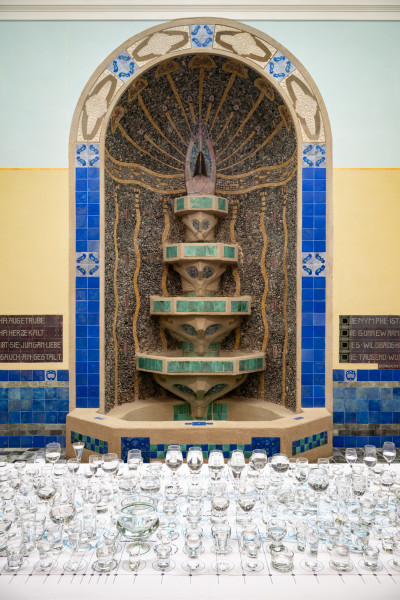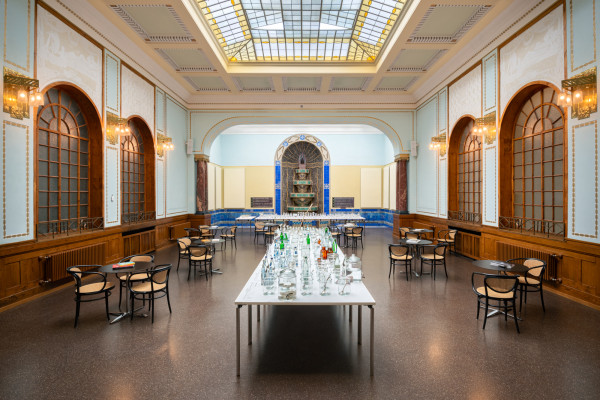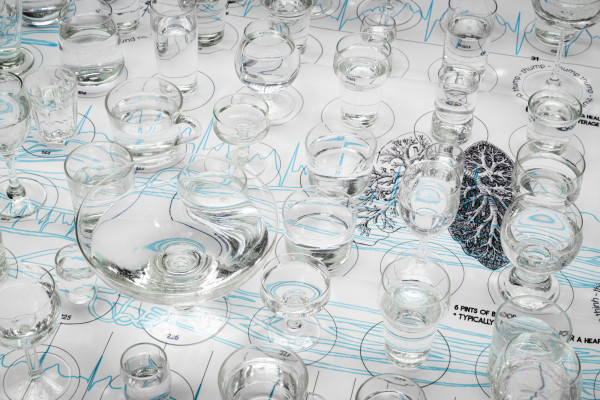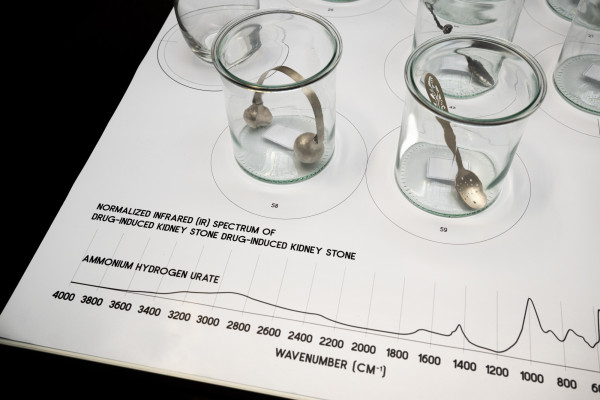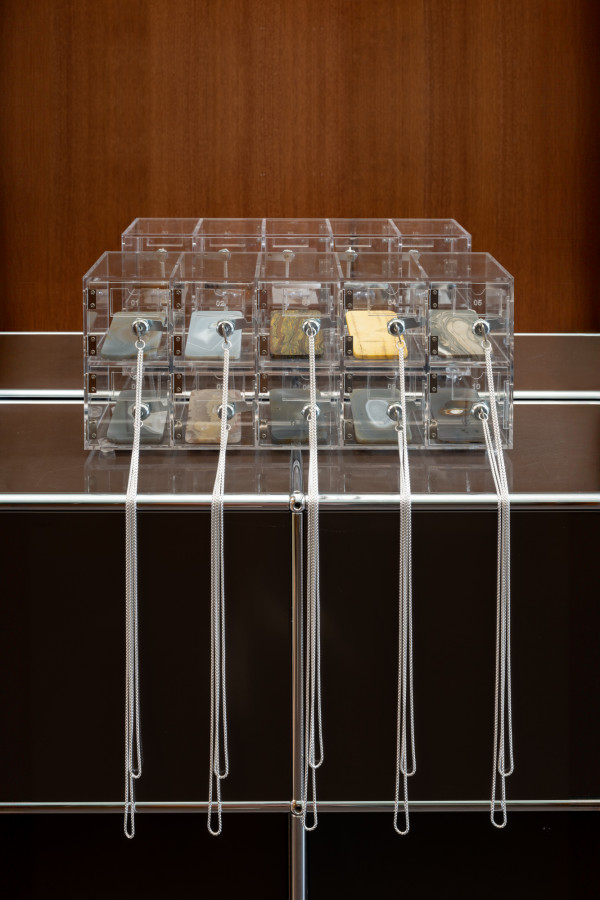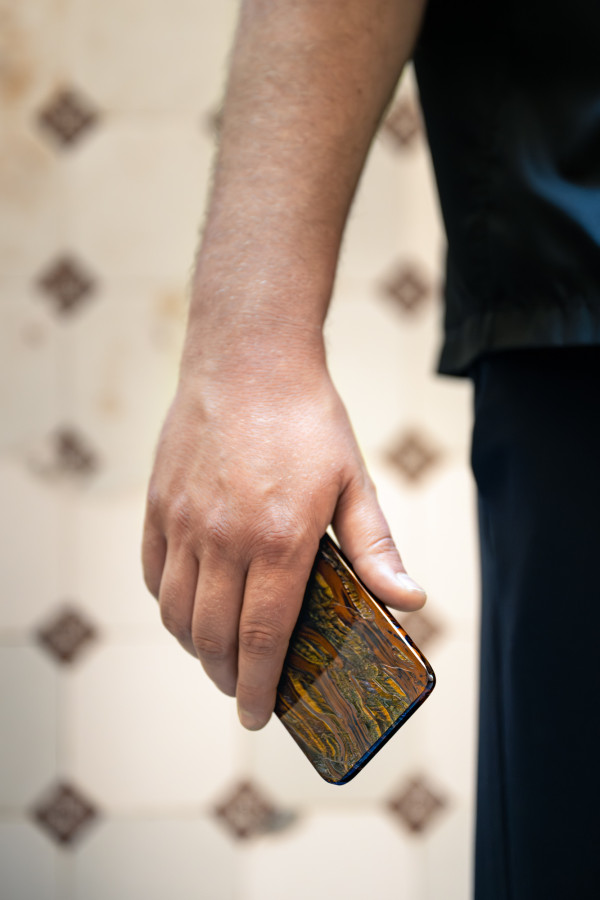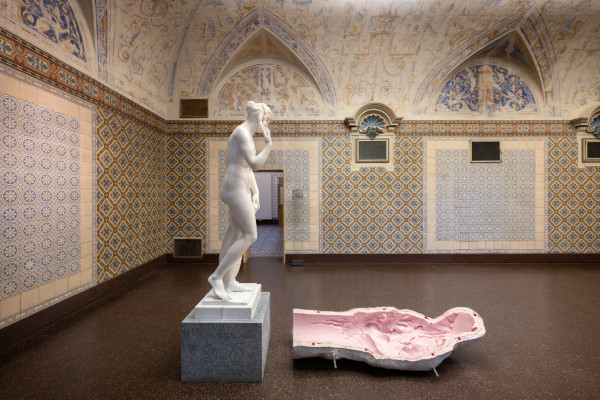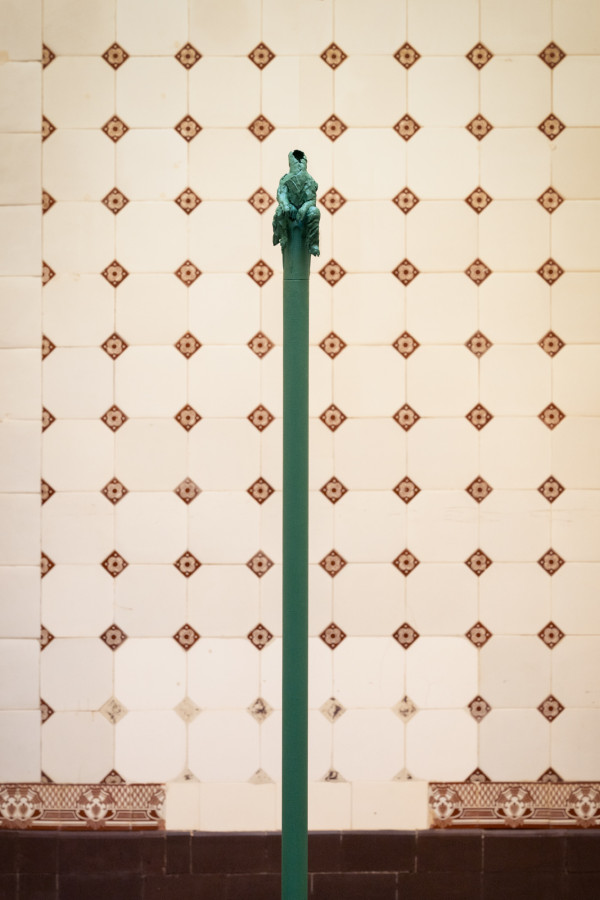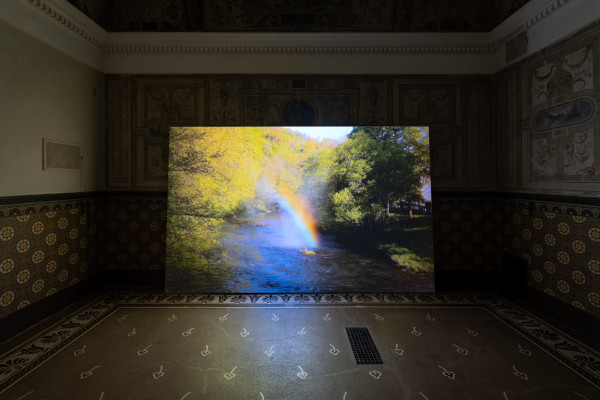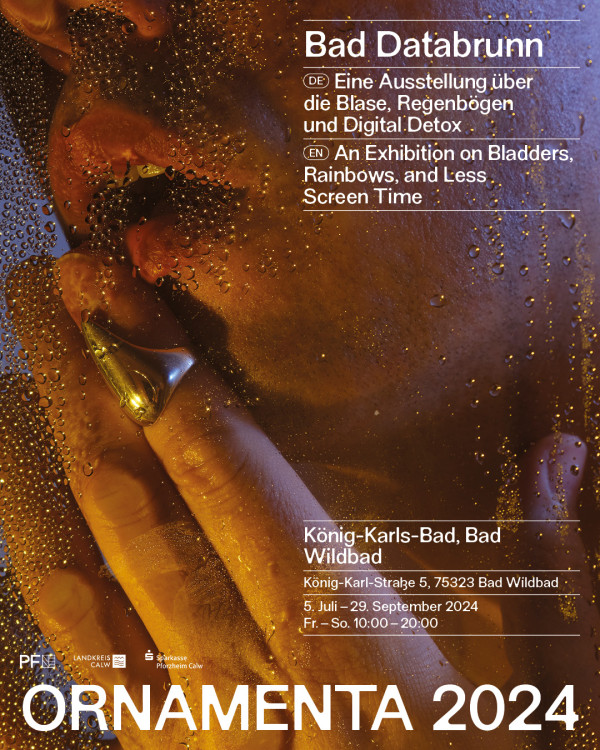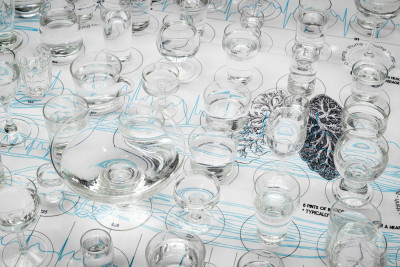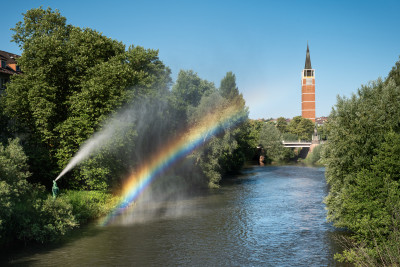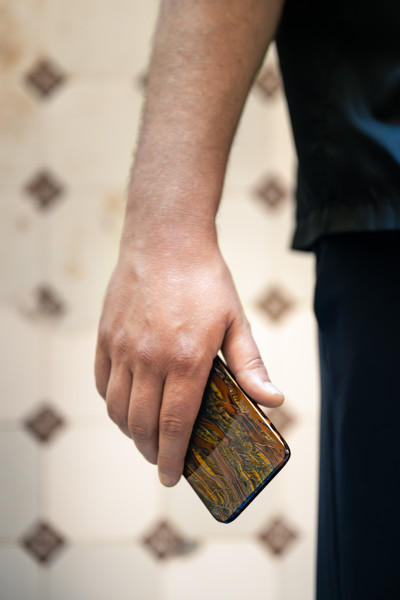For centuries, Germany has embraced the concept of 'Kur' (Spa), a holistic approach to healing that emphasizes spending time in nature, utilizing thermal waters, and fresh air. Small towns settled along the hot springs and mineral water wells, giving birth to the famous spa towns of the Northern Black Forest region. In Ornamenta’s exhibition "Bad Databrunn," a former bathing house is repurposed to show and tell visitors about contemporary ways of dealing with physical and digital stress.
The ornamental walls of the wellness building of König-Karls-Bad set the backdrop for taking a time out from non-stop availability. Visitors are invited to exchange their digital handheld devices for the soothing touch of folly smartphones, made of precious stones by artist Wiktoria (formerly known as Wiktoria Wojciechowska) supported by Gemstone gallerist David Feulner. The flow of liquids inside our bodies is made visible and graspable in a self-service water bar made by the Pforzheim Goldsmith and Watchmaking School and Vocational Training Centre Bad Wildbad with WaterSchool Rotterdam. At the end of the exhibition, you find a rainbow. The German-Icelandic artist duo Veronika Sedlmair and Brynjar Sigurðarson often blur the boundaries between myth and reality; for the Ornamenta, they developed a public artwork in which craft and technology merge. The exhibition "Bad Databrunn" shows the birth of a sculpture for artificial rainbow-making.
